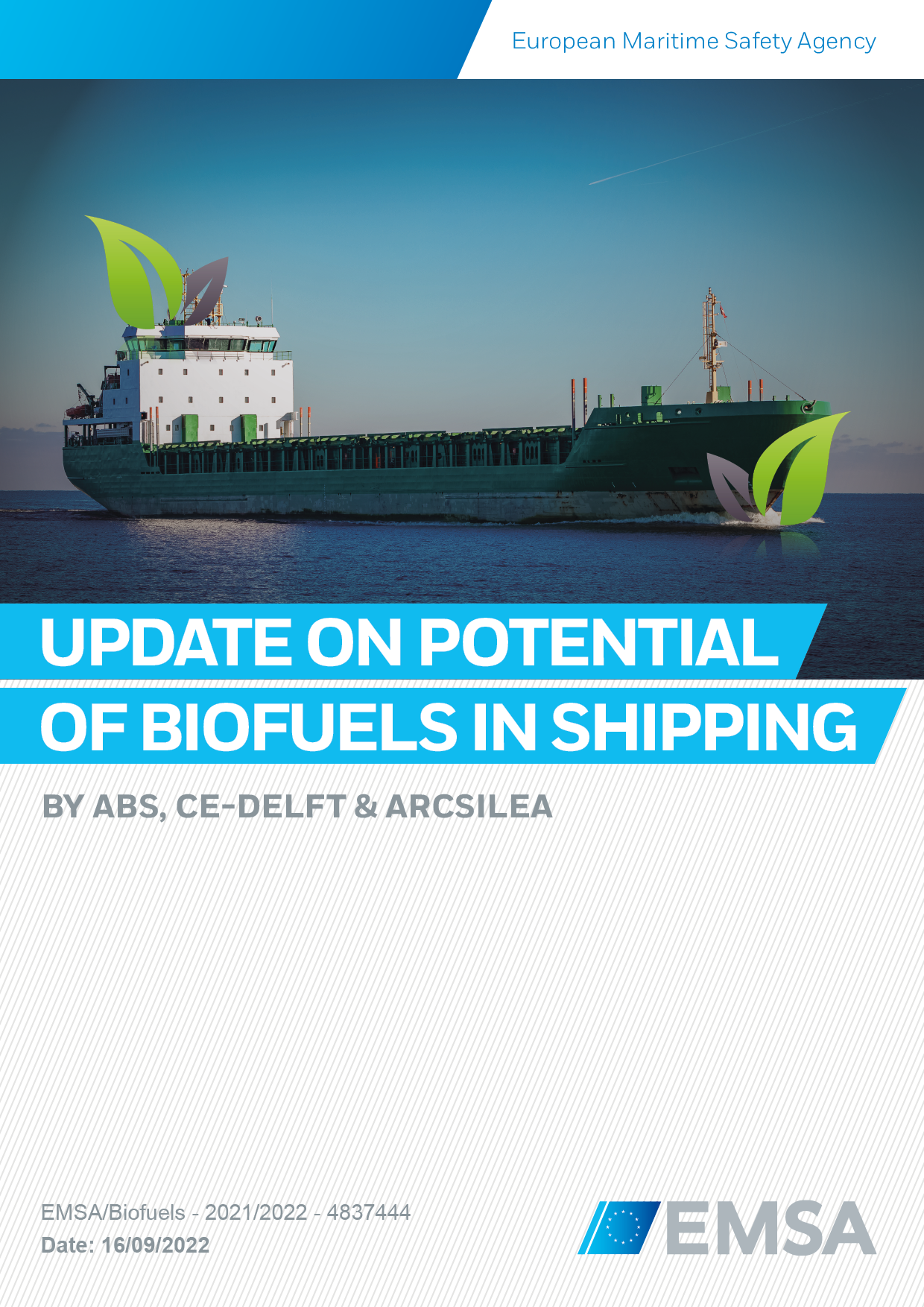Update on Potential of Biofuels for Shipping [updated]
Date
 Among the broad spectrum of technology and fuel-solution pathways available for ship designers, builders, owners and operators, biofuels potentially offer medium and long-term marine fuel alternatives that can enter the market relatively quickly; they also offer the potential, if sustainability criteria are met, to reduce carbon output compared to traditional carbon-based fossil fuels.
Among the broad spectrum of technology and fuel-solution pathways available for ship designers, builders, owners and operators, biofuels potentially offer medium and long-term marine fuel alternatives that can enter the market relatively quickly; they also offer the potential, if sustainability criteria are met, to reduce carbon output compared to traditional carbon-based fossil fuels.
While the current use of biofuels in marine-engine applications is very limited, (the IMO 2020 Data Collection System (DCS) indicated that 99.91% of marine fuel use remained from carbon-based conventional fuels) there is significant potential for biofuels to capture a larger share of the total maritime fuel consumption and support the EU and IMO’s GHG-reduction ambitions for the maritime industry. Recent regulatory developments in the EU covering GHG emissions and the lifecycle aspect of fuels provide a basket of measures in line with the climate goals that could accelerate their adoption.
The ‘drop-in’ characteristics of biofuels, that is the possibility to replace conventional petroleum-refined hydrocarbons without substantial modifications (and in some cases, without any modification) to engines, fuel tanks, pumps or supply systems, may offer an immediate, attractive and cost-effective solution, for the existing fleet.
This report provides an update on a previous study developed by EMSA on biofuels, examining the full range of biofuels, both liquid and gaseous, from the perspective of current production capacity, storage-and-distribution infrastructure and power-generation technologies; it also features techno-economic analyses and includes risk-based case studies to evaluate their potential for the maritime sector.
Also, the study clearly identifies the key advantages in the use of biofuels in shipping and the remaining challenges, technology and regulatory gaps restricting immediate application.
|
EMSA released studies on the use of Ammonia and Biofuels in shipping during the last quarter of 2022. Since that time, a political agreement to extend the EU Emissions Trading Scheme (ETS) to include maritime transport was reached at the end of 2022 and adopted on May 16, 2023. Under the revised ETS Directive, ship operators will be required to monitor their equivalent CO2 emissions from 2024 and to surrender corresponding allowances under a phased in scheme. These subsequent associated carbon costs were not included in the initial studies released in 2022. The studies have now been updated to reflect the additional carbon costs in the cost analysis section of the studies. (26.09.2023) |
Files
-
Categories
-
Tags
